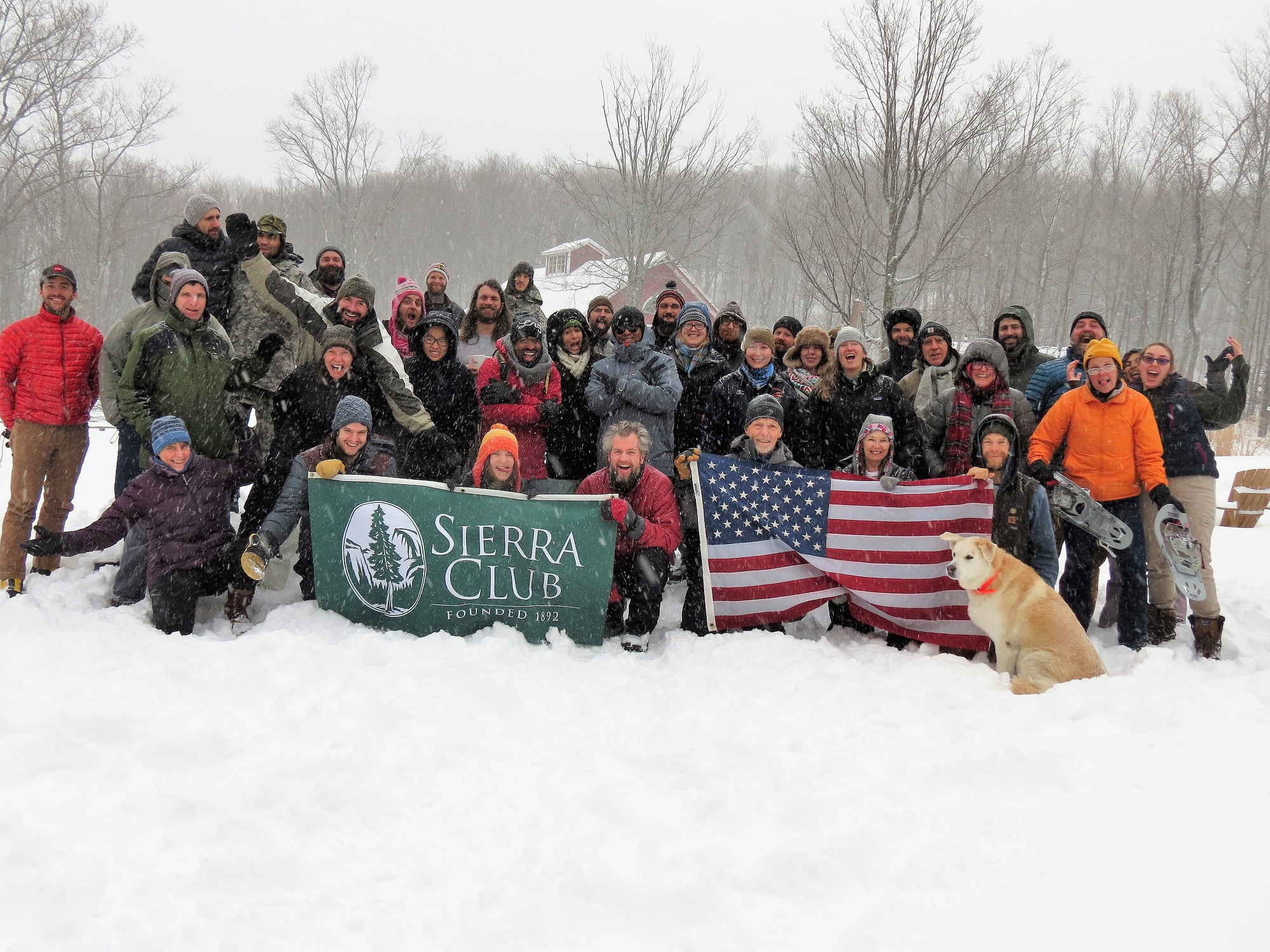“I struggle a bit with the hero-worship of health care workers that’s going on. I want to be recognized for my hard work, but I feel like it will swing back to the other side, to mistrust and lack of support….” -Ana Delgado, nurse midwife and clinical professor
In March 2020, the world shut down due to the novel coronavirus. Since that time, more than 468,000 people have died in the United States alone. In these times, we’ve also seen humanity at its best: People fighting for racial justice in the streets, medical professionals working around the clock to slow the spread of COVID-19, city and state sanitation workers keeping our communities clean, Sierra Club Military Outdoors’ partner, the YMCA, offering emergency childcare services for essential workers at 1,000 sites nationwide, and teachers taking their passion for education to the virtual classroom.
Countless working people have been recognized as “essential,” including the grocery store and warehouse workers and the millions working to keep the supply chain operating smoothly during this crisis. It is easy to think of these individual workers and health care providers as heroes. But in reality, they are just people doing their jobs in the most extreme of circumstances, and for many, it’s causing almost unbearable stress and trauma.
Like emergency workers during 9/11 and service members serving during almost 20 years of war, essential workers will most likely be our country's next generation to work through mental health challenges, trauma, and post-traumatic stress.
“Thank you for your service” is something veterans hear often. But for many service members, the only recompense for that service has been that “thank you” and a free meal at Golden Corral on Veterans Day. Many people returning from military service still bear the invisible wounds of war and other service-related trauma.
Many veterans indeed live productive and fulfilling lives after their military careers. But this is not always the case, and on average, 16 military veterans and four active-duty service members take their own lives every day. That’s far too many service members and veterans to lose to a mental health crisis, and it's one of our society's significant failures. It’s a terrifying prospect that the same grim future could be in store for those working on the front lines of the COVID pandemic. As we reach 28 million cases, those frontline workers will have to bear the stress and burden of getting us through it.
Like emergency workers during 9/11 and service members serving during almost 20 years of war, essential workers will most likely be our country's next generation to work through mental health challenges, trauma, and post-traumatic stress.
It’s time for the veterans who served our nation to support and advocate for those on COVID-19 frontlines who may be left on their own to deal with their collective trauma once the pandemic subsides. Luckily, we have a whole group of people in this country who have experience supporting each other and their communities after dealing with trauma — military veterans. The first signs of this mental health crisis may are already be visible, according to Mental Health America. We veterans must act now to ensure that those frontline workers do not experience the same disregard, delays, and despair we have faced for nearly two decades.
When veterans speak, people listen. Veterans have the power to influence how we view mental health in the United States. Veterans and their allies should advocate for access to nature to help those on the frontlines of the COVID pandemic heal. We should support policies that will open up parks, nature preserves, and other public lands for easy access and recreation so essential workers, frontline health care workers, and all civilians, in addition to veterans, can also find healing in the outdoors. Our advocacy can influence national organizations such as the American Psychiatric Association, the National Institute of Mental Health, and the Centers for Disease Control to recognize nature as another vital tool to help civilians heal from trauma and stress, one that military veterans have already been using successfully.
Sierra Club Military Outdoors, along with our veteran and non-veteran volunteers, can encourage the for-profit outdoor industry and nonprofit outdoor recreation and training organizations to elevate the importance of access to nature to improve the mental wellbeing of military and civilians alike.
COVID-19 has created an opportunity for those who have served our nation in uniform to support and advocate for people on the frontlines of the pandemic. Sierra Club Military Outdoors encourages all military veterans and their allies to lift their voices to be vets for essential workers. Join us today.
